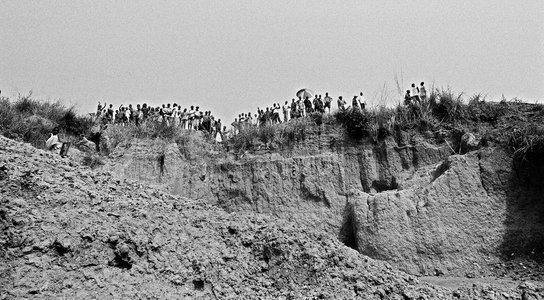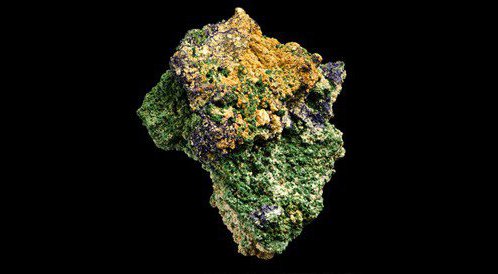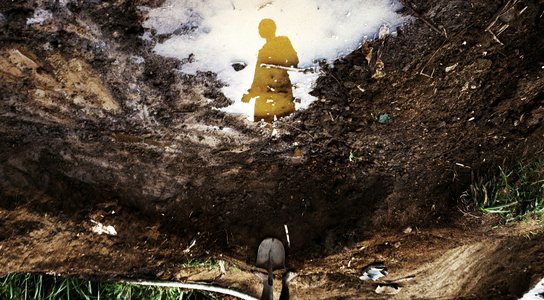Between 2010 and 2012, major mining concessions in Democratic Republic of Congo were acquired by huge international mining companies for billions of dollars.
But most of that money never reached the Congolese state coffers. The assets were sold in secret, initially transferred at knockdown prices to a series of offshore companies, which then made the sales to the major multinational companies. The Congolese state is estimated to have lost out on at least $1.36 billion in the process – equivalent to twice the country’s health and education budgets combined.
The owner of the offshore companies and personal friend of Congolese President Joseph Kabila, Dan Gertler, profited immensely. The companies involved are mostly registered in the British Virgin Islands, where regulations allow their true owners to be kept secret. This is all made possible by a global system that permits companies to withhold details of the people behind them or beneficial ownership.
Global Witness investigated these transactions, concerned that this lack of transparency and Gertler’s relationship with the President increased the potential for corrupt figures in the Congolese elite to personally benefit from the sales, just as the Congolese state lost out.
There is certainly evidence that the offshore companies may have received favourable treatment in the acquisition of the assets they were soon to sell on. Gertler’s companies sometimes paid under five per cent of market valuation for their mining rights, before striking immensely profitable deals with international companies, in particular ENRC (Eurasian Natural Resources Corporation) and Glencore. At the time both companies were listed on the London Stock Exchange.
ENRC and Glencore were able to secure these major mining concessions by doing business through Gertler, who is considered the ‘gatekeeper’ to Congo’s mining sector. Global Witness contends that these companies, despite knowing the corruption risk inherent in doing business with Gertler, entered into the deals and acted to protect his shareholdings in joint ventures in ways that do not make commercial sense.
Each of the deals has added to Gertler’s personal fortune – which now stands at around $1.44 billion according to the Forbes rich list – at the expense of the Congolese state and population. In one example, ENRC paid one of Gertler’s companies $25 million to acquire a stake in a mine which cost him $15 million, then paid him again – a further $50m – to buy the stake for themselves; he had apparently quickly quintupled his money without investing in developing the asset or using any of his own fortune to acquire it.
Glencore, meanwhile, offered privileged loan agreements and share deals to some of these offshore companies – offers not extended to their other partners in Congo mining projects – which enriched Gertler and allowed him and Glencore to take controlling interests in major copper mines. Some details of these and other suspicious agreements are in Global Witness’ secret sales key documents.
The scandal over these sales led the International Monetary Fund to halt its loan programme to Congo in December 2012 and helped spur the UK’s Serious Fraud Office to launch a criminal investigation of ENRC in April 2013. The scandal may have eventually prompted ENRC to delist in an apparent attempt to avoid further scrutiny as a public company. A month later, the Africa Progress Panel – headed by former UN Secretary-General Kofi Annan – said that Congolese “state companies are systematically undervaluing assets”.
More recently, in January 2014, it was revealed that Gertler’s Nessergy company sold back oil rights to the Congolese government for 300 times the purchase price, having invested very little in developing the block. Then, in March 2014, American hedge fund Och-Ziff, one of the main financial backers of Dan Gertler, announced that it is being investigated by the SEC under suspicion of breaching the Foreign Corrupt Practices Act in its African investments.
Mr Gertler vigorously disputes the various charges levelled against him, saying that all the offshore companies in the Fleurette Group, his holding company, are solely for the benefit of members of his family. His spokesman has also argued that he did not obtain assets at knock-down values. Glencore and ENRC also deny any wrongdoing. We have published official responses from Mr Gertler’s representatives, Glencore, and ENRC on our website.
This is too important a matter to let rest. The companies involved must explain the role they have played in these secretive and questionable deals and full light must be shone on the beneficiaries of the offshore companies and their transactions.
Click here for a full list of related documents and publications.


